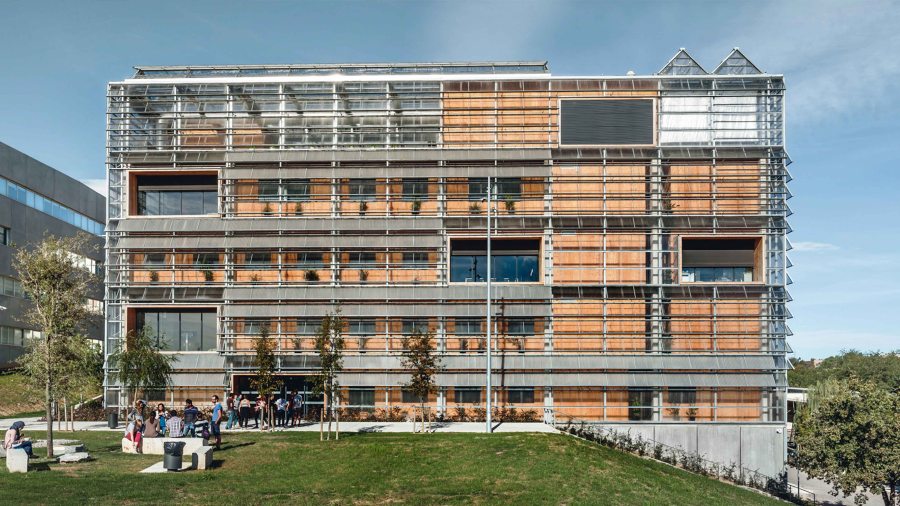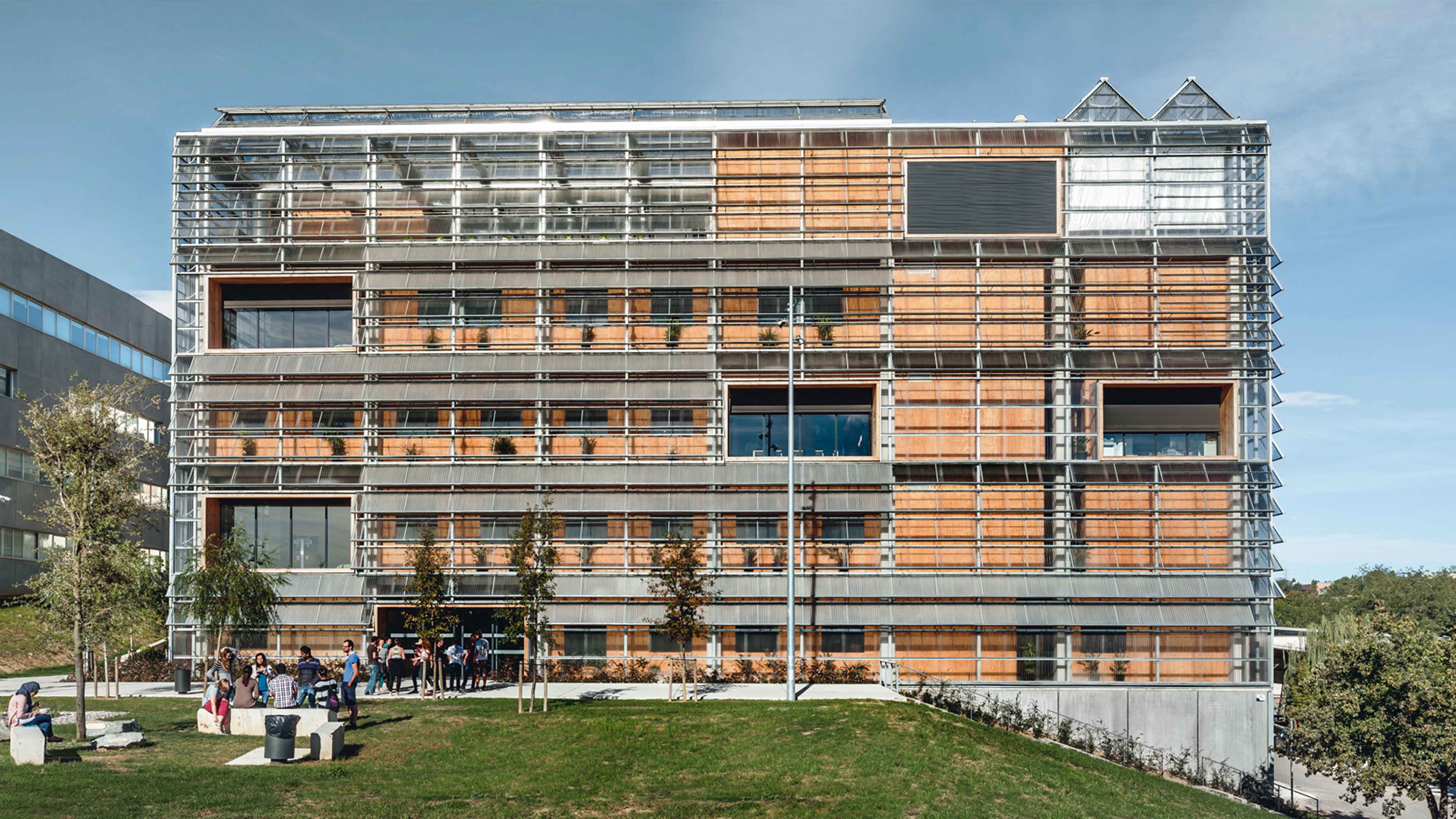Post-doctoral position:
Irrigation for agroecological transitions in agriculture: a science frontier for sustainable water and land management
Location headquarters: UMR-G-eau, Montpellier – France
Duration: 18 months
Starting date: 1st of September 2023
Position overview
Context
The IrrigSUST project is led by the University of Montpellier and the French agricultural research and cooperation organization
working for the sustainable development of tropical and Mediterranean regions (Cirad), France, within the research unit G-eau
in Montpellier – Southern France. It aspires to tackle the links between agroecology and irrigation, by questioning the role of
irrigation in the agroecological transition of agriculture and food systems. In the scientific literature, irrigation and agroecology
rarely appear side-by-side. Usually mentioned in an introductory section, irrigation is frequently presented as an attribute of
intensive farming systems and therefore in opposition to agroecology (AE). Dual analyses of agroecology and irrigation seem
to relate mostly to plot-scale combinations of irrigation and other AE practices, for which interactive effects of AE practices with
water regimes are evidenced. The discourse of agroecology on irrigation is hence mostly of a simplistic two-faceted Manichean
type. In a nutshell, irrigation and agroecology are rarely thought in conjunction. Yet, although rarely made explicit, many
agroecological farming systems include irrigation technology. The hypothesis of this project is precisely that investigating this
link is necessary to produce healthy, diversified and sustainable food and diets at the foodshed scale under climate change.
This is a major scientific challenge that needs to be addressed in order to assess how agroecological transitions of food
systems would impact water resources while adapting to climate change.
The project will address this mentioned challenge, through three specific questions:
- What is the state of scientific knowledge on the role of irrigation in the agroecological transition of agriculture? The response is not straightforward, and as such, a literature review will be undertaken. This literature review will cover current research undertaken and its specific direction will be discussed in detail with applicants.
- Is there evidence of successful agroecological transitions of irrigated systems? We will investigate success stories or their contraries and highlight the conditions in which they arose or the major lock-ins impeding a transition. To tackle this aspect, grey literature will be analysed, and a survey/mapping of on-going research will be undertaken through collaborations initiated with key researchers working on irrigation and/or agroecology, within the MUSE strategic partners and beyond, by undertaking a case-study analysis of diverse situations.
- What could be the paths to follow to initiate/pursue this agroecological transition? We will collaboratively build the major questions to tackle in the future. On the basis of the knowledge gained from the previous two points, a synthesis article and a special issue in a peer-reviewed journal will be produced.
Missions and activities
The post-doctoral researcher will play a key role in undertaking research and collaboration with partners within the project. The
hired personel will be in close interaction with the project coordinators and international partners. On the scientific side,
She/He/They will reflect upon the role of water management, in particular irrigation, for the agroecological transition of food
systems. The post-doctorate will also play a role of team coordinator, ensuring smooth and efficient interactions with all team
members.
In close interaction with the members of the team, the post-doc will be responsible of conducting
(i) the literature review (6 months);
(ii) the case-study analysis (8 months, possible overlapping with (i));
(iii) the co-edition of the special review (4 months).
He/She/They will be strongly involved in the collaboration strengthening, which will be led by the project coordinator.
The hired Post-doctorate will: (i) co-supervise two internships focusing on ex-ante analyses (conceptual framework, grey
literature analysis) of case studies and their synthesis; (ii) interact closely with project leaders and members; (iii) contribute to,
and be part of, an emerging network of international researchers interested in the interface AE-irrigation.
The hired Post-doctorate will be part of a highly motivated research team (Dr Leauthaud – UC ANR Santa Cruz USA – Dr
Leenhardt and approximately 15 people interested in the subject in the research unit G-eau), engaging with the question of
agroecological transitions of irrigation systems. Outcomes will be both scientific material (co-coordination of a special issue as
well as first and co-author publications), and insertion within an international network. The Cirad has also set up multiple
discussion groups concerning agroecology in which he/she/they can take part.
Qualifications, skills required and working conditions
A PhD and post-doctoral research on agroecology, using systemic and holistic approaches. Background in environmental
sciences, in particular agronomy or water management, or physical geography.
Technical competences: Work on scientific and grey literature reviews, conceptual models and their on-ground
application/validation will be appreciated. Work based on plot level analyses solely will not be considered. Experience in
scientific publications is a request (candidates with a low number of peer-reviewed publications will not be considered).
Communication: skills in communication (spoken, written), and team building and networking. Thorough knowledge (spoken
and written) of English is compulsory. Fluent working knowledge of French and/or Spanish (castillan) will be appreciated.
Collaboration and team work: a large part of the research will be undertaken with a group of researchers wordwide. Working
within multi-cultural environments, with research partners around the world will be appreciated. The candidate must be at ease
with communication and working within a team. Autonomy in work, with main decisions and milesteps validated with the
coordination team, is a must.
Constraints
Regular trips of several weeks around the world.
Work on computer.
Working with an international team, meaning that many interactions will take place through telcoms.
Salary
Salary will be based on experience and professional qualifications and within the appropriate University of Montpellier salary
range (INM 546 to INM591). This corresponds to a monthly net salary of 2149€ to 2326€. The median net salary in France is
1850€. This salary corresponds to 38 to 44% of highest salaries in France (INSEE statistics).
Selection process
Only excellent profiles will be considered.
Selection process: All appplicants, before the 15th of June : please send a letter and detailed CV. Please send your CV and letter to
crystele.leauthaud@cirad.fr
In June and July, applicants with appropriate and applicable education and experience will be invited to participate in a
preliminary, remote interview. Applicants selected to proceed will be asked to produce a one to two page concept note on a
specific topic. Finally, two to three candidates will be invited to Montpellier to meet the team, discuss the post-doctoral position
and present their current work.
A search committee of minimum 3 people will review all applications, interview candidates, and recommend individuals most
suitable for the position.
Contact : crystele.leauthaud@cirad.fr





